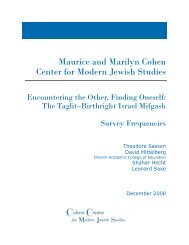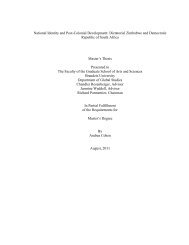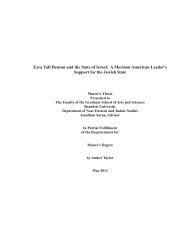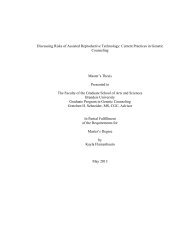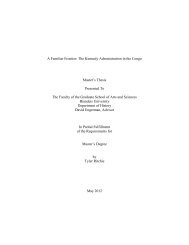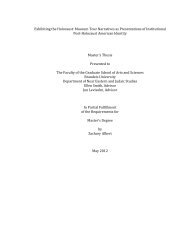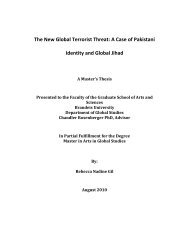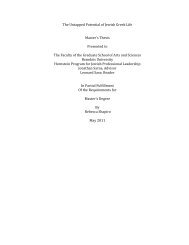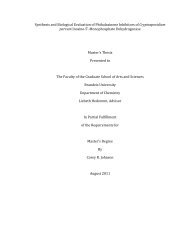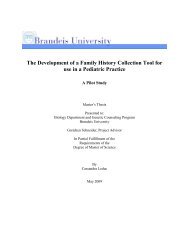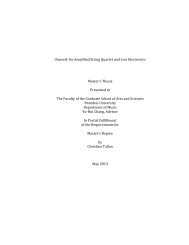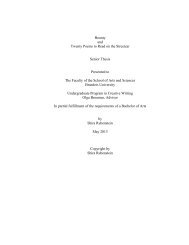The Views of Rabbi Moses Feinstein, Rabbi Abraham Joshua ...
The Views of Rabbi Moses Feinstein, Rabbi Abraham Joshua ...
The Views of Rabbi Moses Feinstein, Rabbi Abraham Joshua ...
You also want an ePaper? Increase the reach of your titles
YUMPU automatically turns print PDFs into web optimized ePapers that Google loves.
<strong>Rabbi</strong> Joseph B. Soloveitchik on Interfaith Dialogue<br />
On November 26, 1961, Soloveitchik declared his opposition to ―the presence <strong>of</strong><br />
Jews as observers or with any formal status at the Ecumenical Council‖ 145 to rabbis <strong>of</strong><br />
different denominations convened by the World Jewish Congress. In February 1964,<br />
Soloveitchik, speaking at the Conference <strong>of</strong> the <strong>Rabbi</strong>nical Council <strong>of</strong> America,<br />
―criticized the proposed decree as ‗evangelical propaganda,‘‖ 146 regarding Jews solely as<br />
converts in potentia. That same year, Soloveitchik gave a talk, entitled ―Confrontation,‖<br />
in which he delineated four preconditions for Jewish-Christian engagement:<br />
1. Acknowledgement that the Jewish people are an ―independent faith<br />
community endowed with intrinsic worth to be viewed against its own<br />
meta-historical backdrop without relating to the framework <strong>of</strong> another<br />
(i.e. Catholic) community.‖ 147<br />
2. Recognition that the Jewish ―singular commitment to G[-]d and....hope<br />
for survival are non-negotiable and not subject to debate or<br />
argumentation.‖ 148<br />
145 Kimelman 4<br />
146 Kimelman 6-7<br />
147 Kimelman 7<br />
148 Kimelman 7<br />
28




